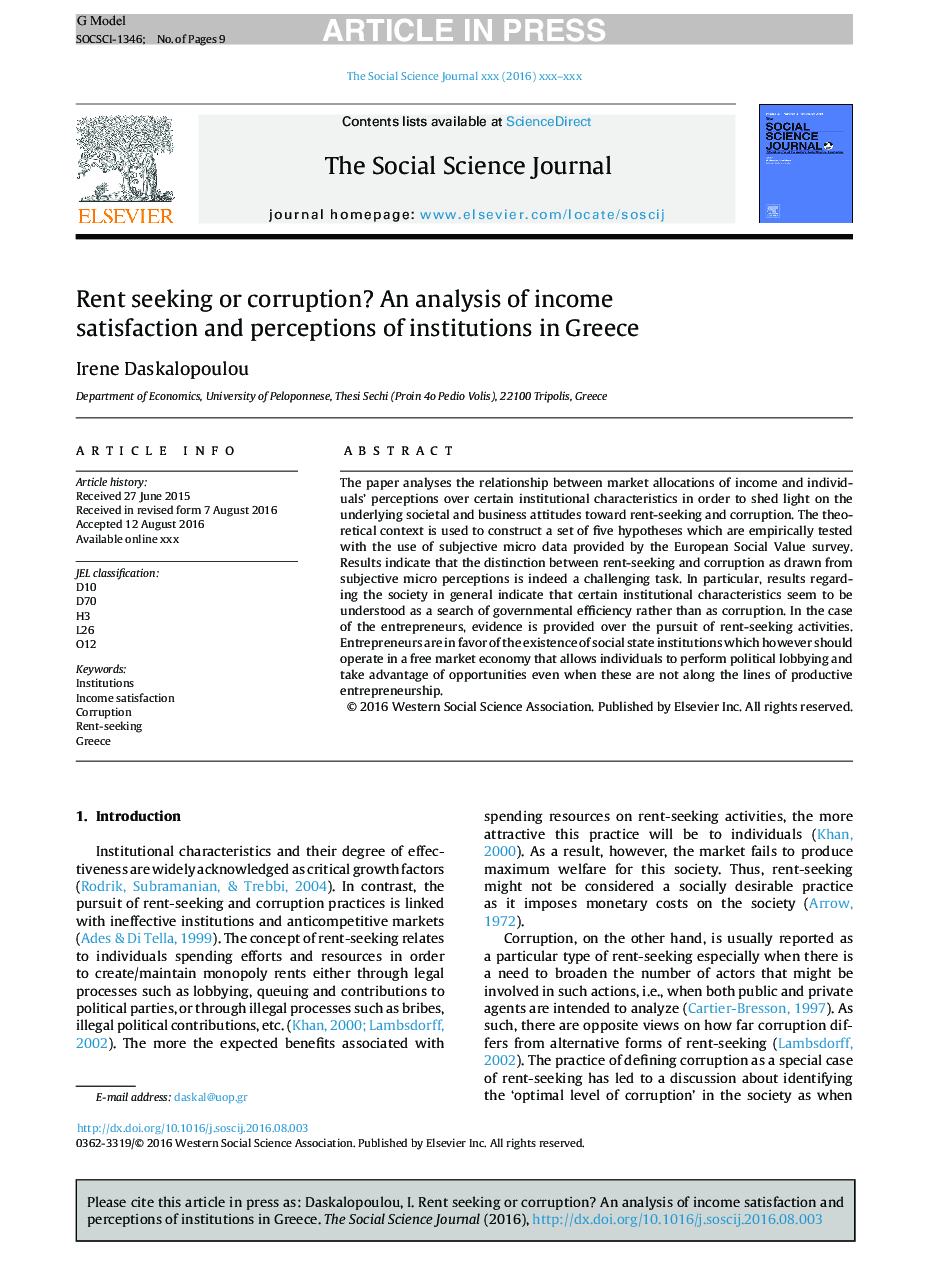| Article ID | Journal | Published Year | Pages | File Type |
|---|---|---|---|---|
| 4761919 | The Social Science Journal | 2016 | 9 Pages |
Abstract
The paper analyses the relationship between market allocations of income and individuals' perceptions over certain institutional characteristics in order to shed light on the underlying societal and business attitudes toward rent-seeking and corruption. The theoretical context is used to construct a set of five hypotheses which are empirically tested with the use of subjective micro data provided by the European Social Value survey. Results indicate that the distinction between rent-seeking and corruption as drawn from subjective micro perceptions is indeed a challenging task. In particular, results regarding the society in general indicate that certain institutional characteristics seem to be understood as a search of governmental efficiency rather than as corruption. In the case of the entrepreneurs, evidence is provided over the pursuit of rent-seeking activities. Entrepreneurs are in favor of the existence of social state institutions which however should operate in a free market economy that allows individuals to perform political lobbying and take advantage of opportunities even when these are not along the lines of productive entrepreneurship.
Related Topics
Social Sciences and Humanities
Psychology
Social Psychology
Authors
Irene Daskalopoulou,
